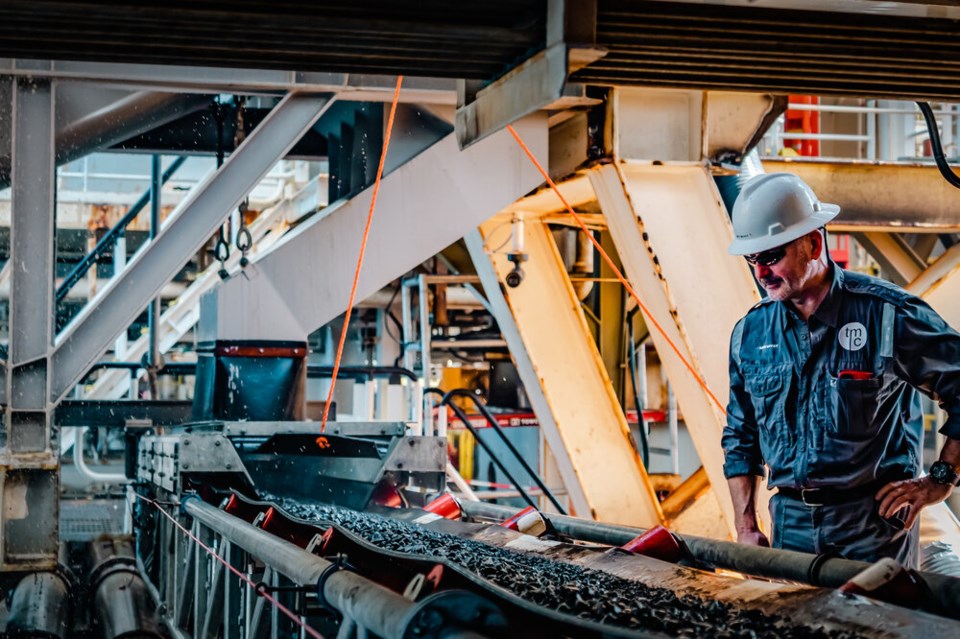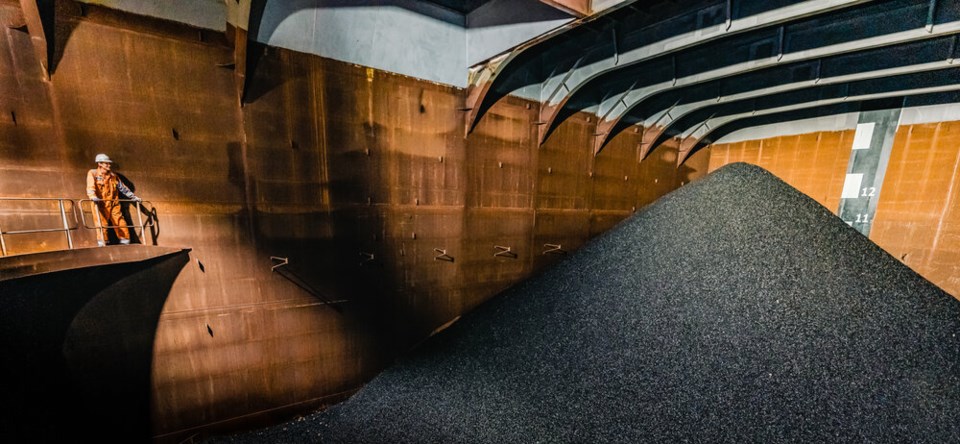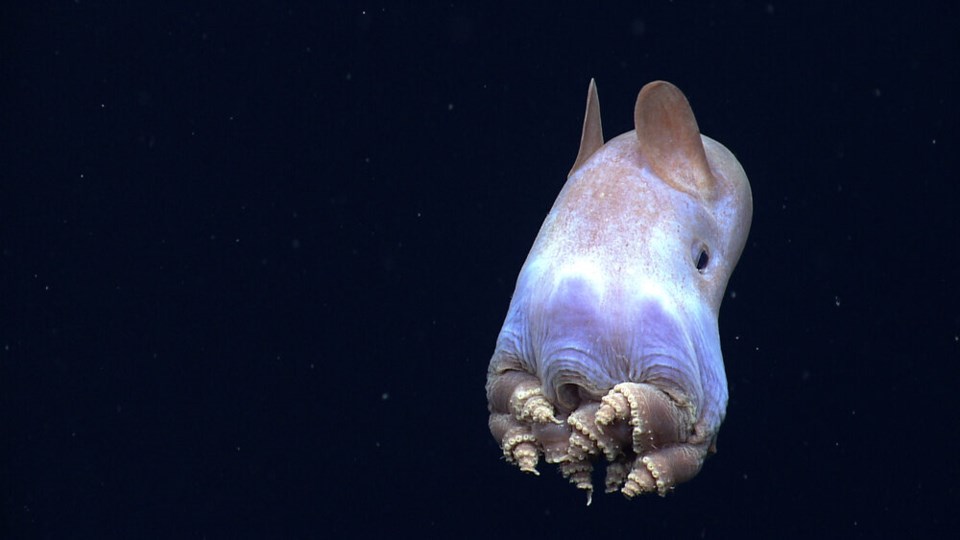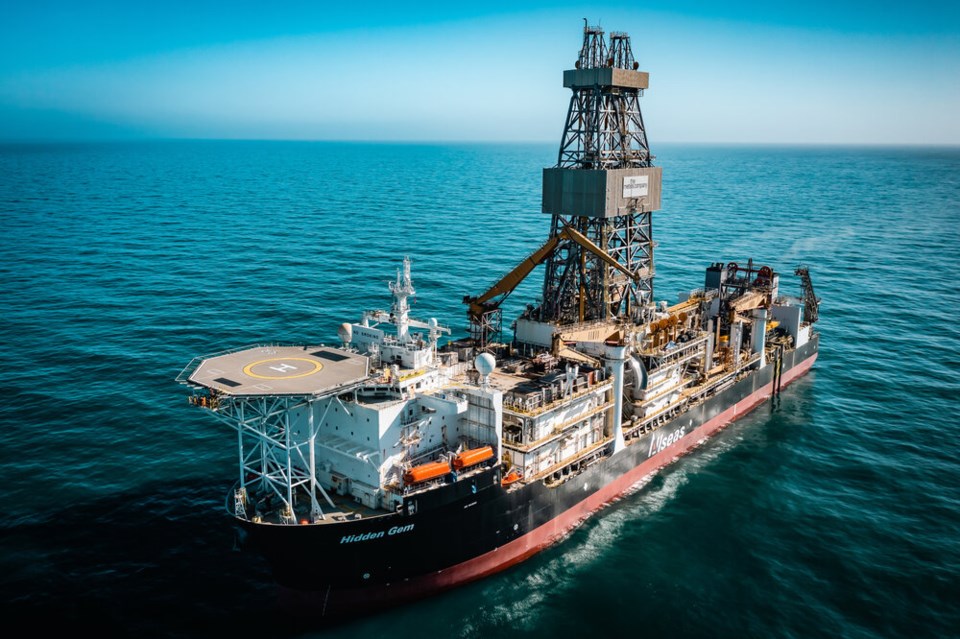A Vancouver-based mining company says it has submitted an application to U.S. authorities to become the first company to commercially mine the deep sea.
In a news release Tuesday, The Metals Company said its U.S. subsidiary filed the application with the National Oceanic and Atmospheric Administration (NOAA) to mine polymetallic nodules deep in the Pacific Ocean between Mexico and Hawaii.
It comes less than a week after U.S. President Donald Trump signed an executive order to unilaterally open up mining of the world’s seabeds to bolster a “robust domestic supply chain” and “counter China’s growing influence over seabed mineral resources.”
Critical metals are key industrial ingredients used to produce everything from military technology to the batteries used in electric vehicles.
The potato-sized metal nodules take millions of years to precipitate out of the water, often forming around a shell or shark tooth.
Critics say sucking them off the seafloor several kilometres under the surface risks a deep sea carbon pump and little unexplored ecosystems that make up one of the world’s last frontiers.
In the past, The Metals Company said recovering the nodules deep under the ocean offers a more environmentally friendly way to exploit critical minerals, avoiding conflict with communities and fuel industrial growth. The latest turn to seek cover of U.S. laws appears to have focused the company's narrative on how its operations could benefit the United States.
“Today marks a major step forward—not just for TMC USA, but for America’s mineral independence and industrial resurgence,” chairman and CEO Gerard Barron said in a statement Tuesday.
“With these applications, we are offering the United States a shovel-ready path to new and abundant supplies of nickel, copper, cobalt, and manganese—critical metals for energy, infrastructure, and defence.”

The commercial permit application covers a 25,160-square-kilometre area in the Clarion Clipperton Zone where the company has already carried out exploratory recovery of the nodules. The company said it has also applied for two exploration licenses covering almost 200,000 square kilometres of sea floor.
The combined areas are estimated to contain 15.5 million tonnes of nickel, 12.8 million tonnes of copper, two million tonnes of cobalt and 345 million tonnes of manganese, according to The Metals Company.
U.S. authorities are expected to make an initial determination within 60 days on whether the commercial recovery permit is in compliance with U.S. laws and regulations. From there, NOAA would begin a full review of the applications, including environmental and technical evaluations, the company said.

Company, Trump administration collide with international law
The move has put both The Metals Company and the Trump administration in direct confrontation with the the International Seabed Authority (ISA) — a little known international body set up under the United Nations Convention on the Law of the Sea (UNCLOS) that has acted as the premier global forum to regulate mining the world’s deep sea resources.
The Metals Company is still technically seeking approval to mine the same area through partnerships with two companies and the island nations of Nauru and Tonga. But Barron said the company became frustrated with the slow pace of progress.
In March, ISA Secretary-General Leticia Carvalho expressed “deep concern” that the company was attempting to circumvent the UN body’s exclusive mandate to regulate commercial exploitation of deep sea resources.
Barron responded by slamming Carvalho, the ISA and member states for bowing to a faction of states allied with environmental groups who see the deep sea mining industry as their “last green trophy.”
While the ISA and member states reaffirm their commitment to multilateralism in public, Barron said “many of them acknowledged a stark reality in private: commercial industry is not welcome at the ISA.”
Without approval from the ISA, any commercial exploitation of critical minerals in international waters would violate international law and undermine the principle of the seabed as the common heritage of humankind, the authority said in a recent statement.
“Unilateral exploitation of resources that belong to no single State, but to all of humanity, is prohibited,” the statement reads.
Any unilateral action attempting to circumvent international law may incur legal, diplomatic, economic, security, financial and reputational risks, the ISA warned.
“If powerful States or corporations attempt to bypass the international legal framework established by UNCLOS, they risk undermining its very foundation: preventing unilateral actions that privilege the interests of the few at the expense of the many,” the authority’s statement said.

32 countries support a precautionary pause on deep sea mining
Several world leaders and environmental groups have warned the company’s moves have been reckless and risk damaging a sensitive ecosystem and ocean carbon pump still relatively unknown by scientists.
To date, 32 countries — including Canada — have backed a moratorium or precautionary pause on deep sea mining until robust regulations are in place.
Following The Metals Company’s applications Tuesday, Nicole Zanesco, the North America coordinator for the Deep Sea Conservation Coalition, said the U.S. was poised to assume enormous risk while standing to gain nothing economically.
She pointed to a lack of viable infrastructure to support deep sea mining, its enormous costs, and the “highly uncertain” long-term market value of the metals.
“This is corporate overreach masquerading as industrial policy,” Zanesco said.




